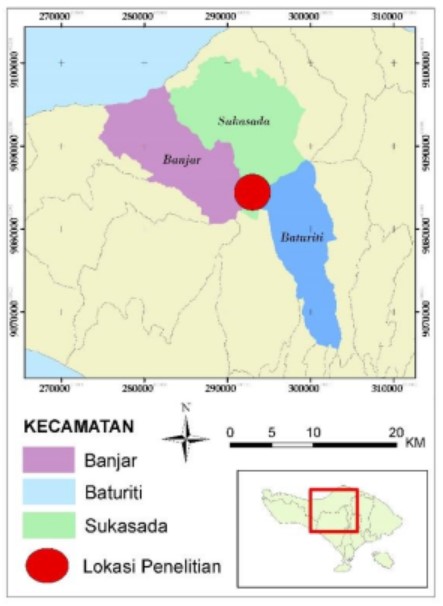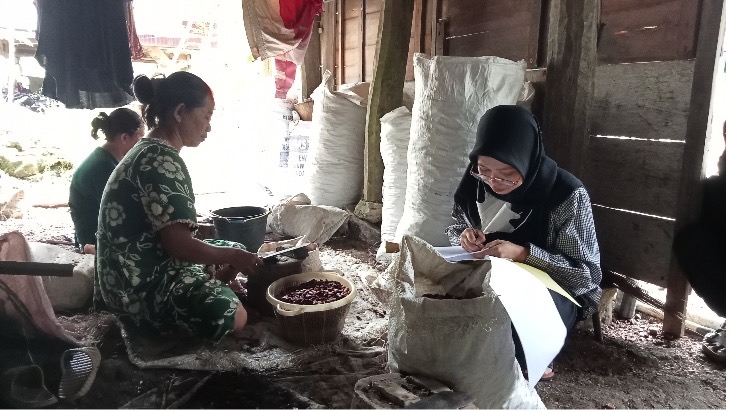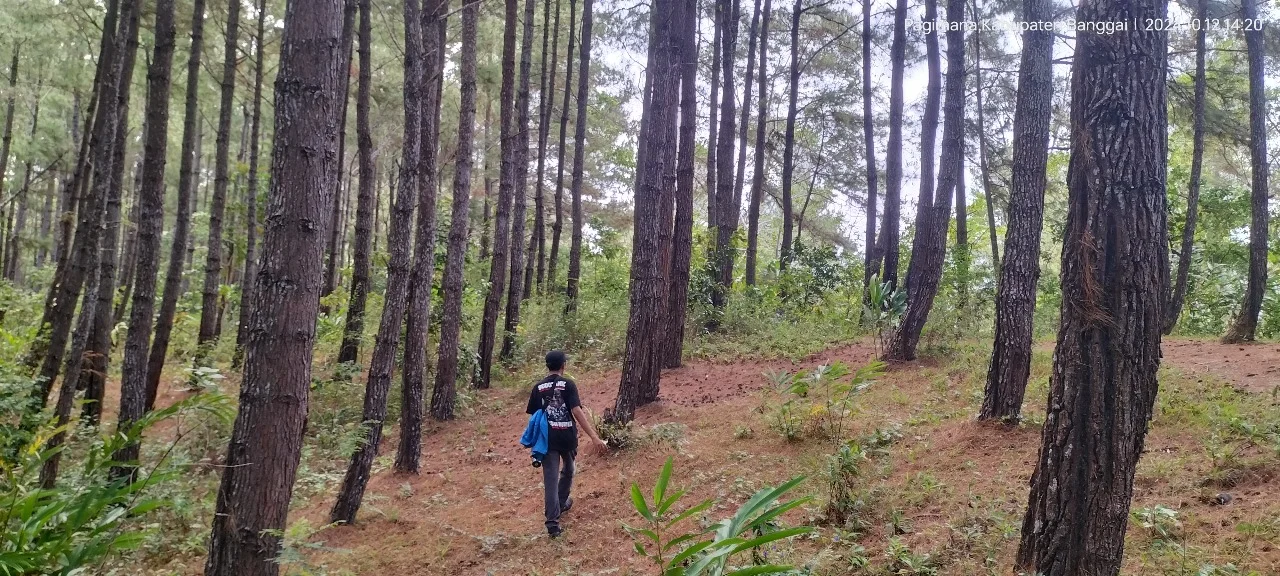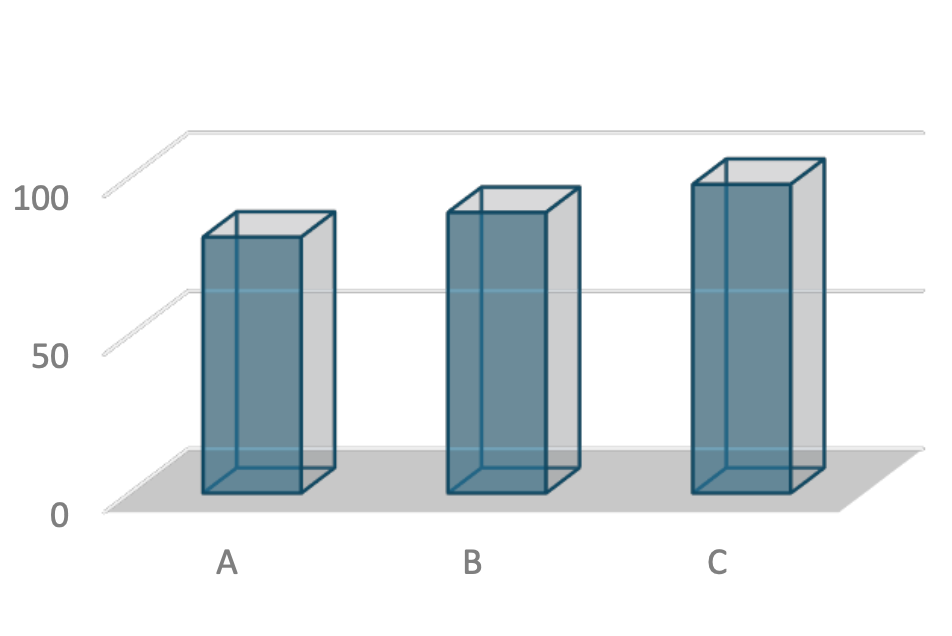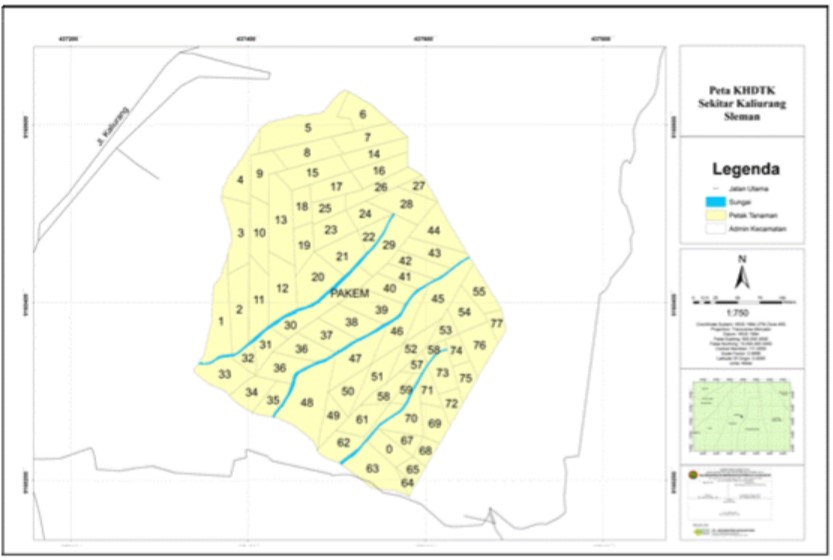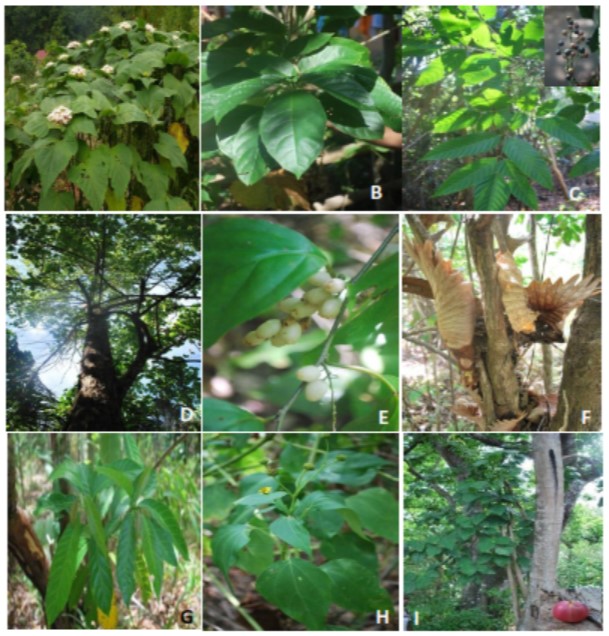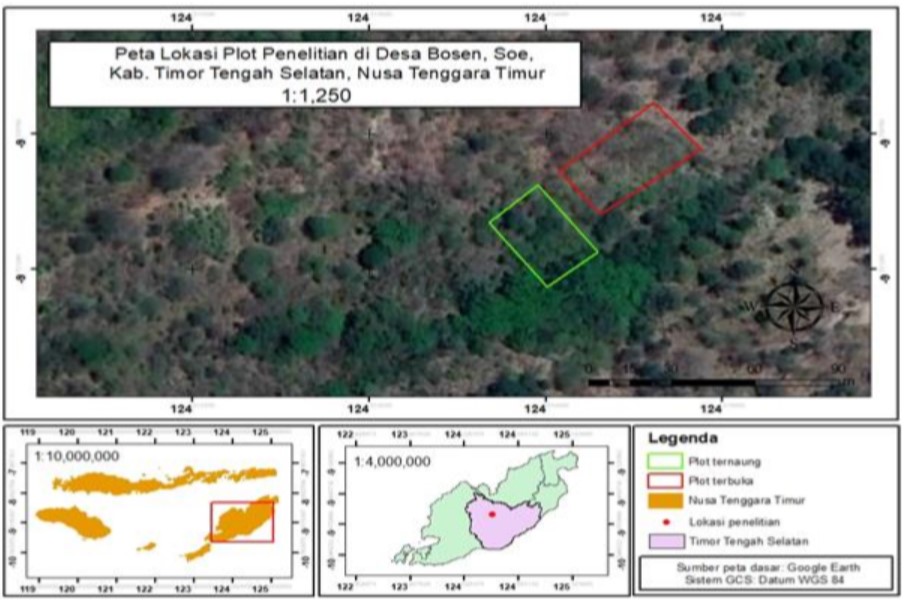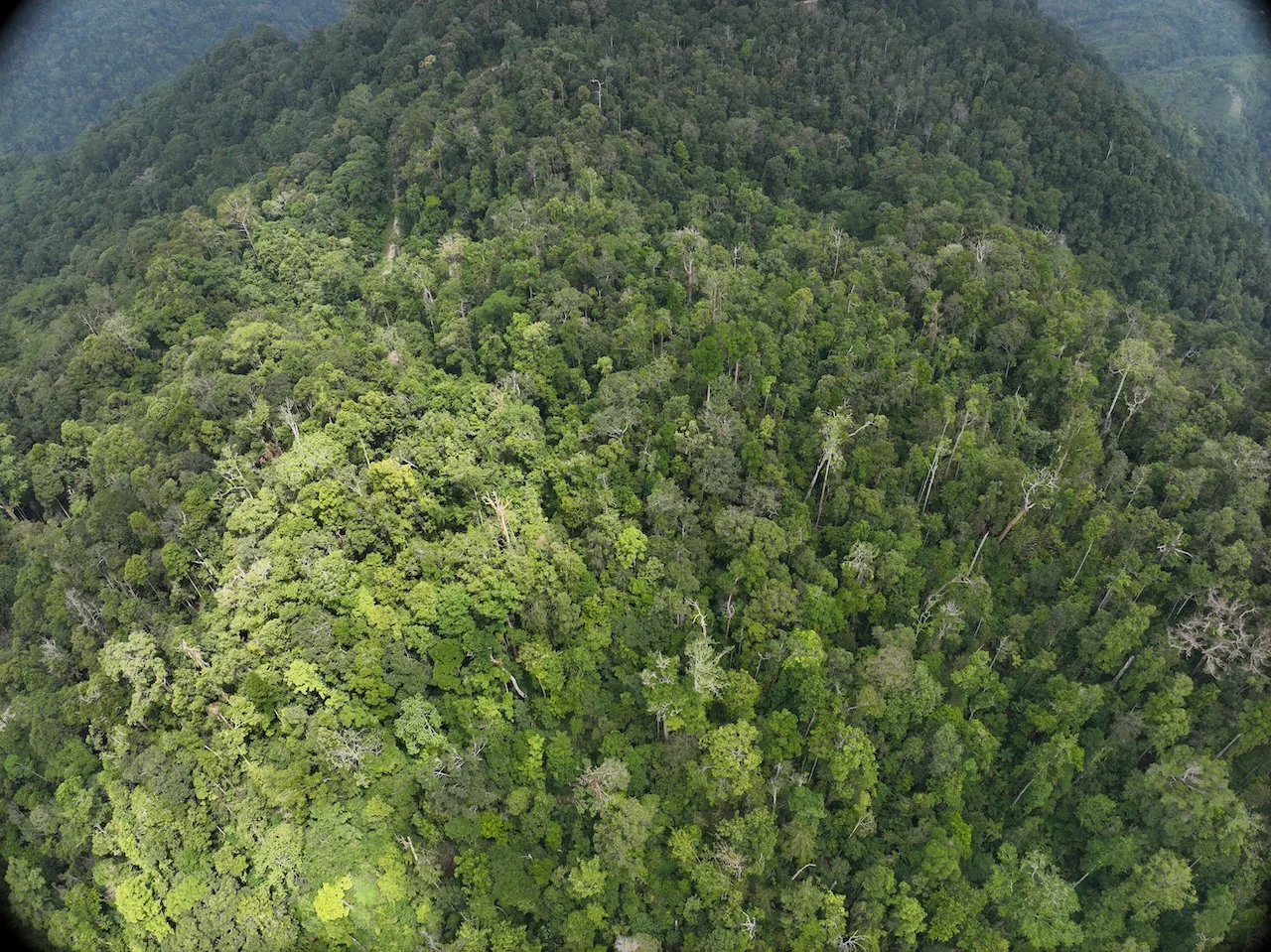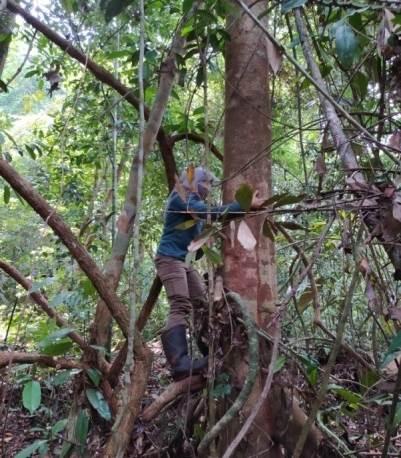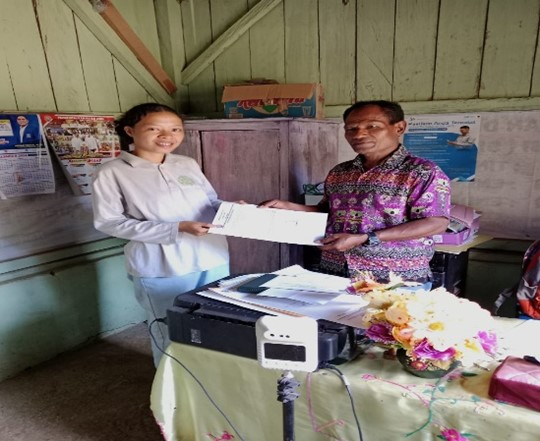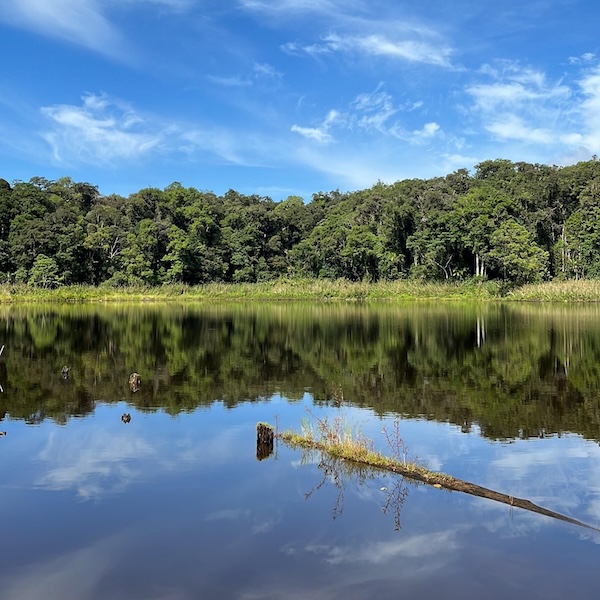Preservation Efforts of Pranajiwa (Euchresta horsfieldii (Lesch.) Benn.) Based on Tri Hita Karana by Balinese Community
Abstract
Pranajiwa (Euchresta horsfieldii (Lesch.) Benn.) has been widely used as traditional medicine by the Balinese ethnic community. Up to now, the raw materials for traditional medicines from E. horsfieldii are harvested directly from their natural habitat. It is feared that it will interfere with its sustainability. The Balinese ethnic community has a culture known as the Tri Hita Karana (THK) concept, which means there is a balance in the relationship between humans and God, nature, and with fellow humans. This study aims to identify the use of E. horfieldii and its conservation efforts based on THK. This research was carried out in communities living around Bedugul, Bali. The method of data collection was done by participatory observation and semi-structured interviews. The research informants were 33 people with a purposive sampling method. The criteria are based on the level of knowledge and use of E. horsfieldii. Data were analyzed and interpreted descriptively. The results of this study indicate that E. horsfieldii has been widely used to treat various diseases and is practiced by many traditional healers (balian). However, people also use it for treatment without a standardized dose. This causes the measure of its use is very diverse. Harvesting of E. horsfieldii is carried out by the community while still observing the principle of sustainability according to the THK philosophy. Harvesting of E. horsfieldii is mostly done for individual needs. Although there has been a practice of buying and selling E. horsfieldii, harvesting has not resulted in over-exploitation. Efforts to conserve E. horsfieldii have been carried out by the community, especially the balians by trying to cultivate it, although they still fail. In addition, the conservation of E. horsfieldii is carried out by the Bali BKSDA with efforts to maintain the habitat of E. horsfieldii in forest areas.
الحقوق الفكرية (c) 2022 Jurnal Wasian

هذا العمل مرخص بموجب Creative Commons Attribution-NonCommercial 4.0 International License.
Copyright and License
All articles published in Wasian Journal are the property of the authors. By submitting an article to Wasian Journal, authors agree to the following terms:
-
Copyright Ownership: The author(s) retain copyright and full publishing rights without restrictions. Authors grant the journal the right to publish the work first and to distribute it as open access under a Creative Commons Attribution 4.0 International License (CC BY 4.0).
-
Licensing: Articles published in Wasian Journal are licensed under a Creative Commons Attribution 4.0 International License (CC BY 4.0). This license allows others to share, copy, and redistribute the material in any medium or format, and adapt, remix, transform, and build upon the material for any purpose, even commercially, provided that proper credit is given to the original author(s) and the source of the material

This work is licensed under a Creative Commons Attribution 4.0 International License. -
Author's Rights: Authors are permitted and encouraged to post their work online (e.g., in institutional repositories or on their website) prior to and during the submission process, as it can lead to productive exchanges and greater citation of published work.
-
Third-Party Content: If your article contains material (e.g., images, tables, or figures) for which you do not hold copyright, you must obtain permission from the copyright holder to use the material in your article. This permission must include the right for you to grant the journal the rights described above.
-
Reprints and Distribution: Authors have the right to distribute the final published version of their work (e.g., post it to an institutional repository or publish it in a book), provided that the original publication in Wasian Journal is acknowledged.
For the reader you are free to:
- Share — copy and redistribute the material in any medium or format for any purpose, even commercially.
- Adapt — remix, transform, and build upon the material for any purpose, even commercially.
- The licensor cannot revoke these freedoms as long as you follow the license terms.
Under the following terms:
- Attribution — You must give appropriate credit , provide a link to the license, and indicate if changes were made . You may do so in any reasonable manner, but not in any way that suggests the licensor endorses you or your use.
- No additional restrictions — You may not apply legal terms or technological measures that legally restrict others from doing anything the license permits.
Notices:
You do not have to comply with the license for elements of the material in the public domain or where your use is permitted by an applicable exception or limitation .
No warranties are given. The license may not give you all of the permissions necessary for your intended use. For example, other rights such as publicity, privacy, or moral rightsmay limit how you use the material.

